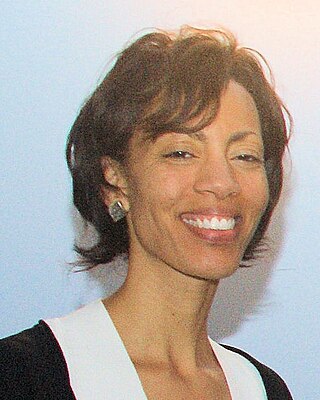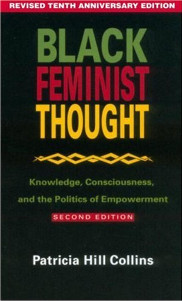
Sexuality and gender identity-based cultures are subcultures and communities composed of people who have shared experiences, backgrounds, or interests due to common sexual or gender identities. Among the first to argue that members of sexual minorities can also constitute cultural minorities were Adolf Brand, Magnus Hirschfeld, and Leontine Sagan in Germany. These pioneers were later followed by the Mattachine Society and the Daughters of Bilitis in the United States.
Down-low is an African-American slang term specifically used within the African-American community that typically refers to a sexual subculture of Black men who usually identify as heterosexual but actively seek sexual encounters and relations with other men, practice gay cruising, and frequently don a specific hip-hop attire during these activities. They generally avoid disclosing their same-sex sexual activities, even if they have female sexual partner(s), they are married to a woman, or they are single. The term is also used to refer to a related sexual identity. Down-low has been viewed as "a type of impression management that some of the informants use to present themselves in a manner that is consistent with perceived norms about masculine attribute, attitudes, and behavior".
Oppression is malicious or unjust treatment of, or exercise of power over, a group of individuals, often in the form of governmental authority or cultural opprobrium. It is related to regimentation, class, society, and punishment. Oppression may be overt or covert, depending on how it is practiced. Oppression refers to discrimination when the injustice does not target and may not directly afflict everyone in society but instead targets or disproportionately impacts specific groups of people.

Womanism is a term originating from the work of African American author Alice Walker in her 1983 book In Search of Our Mother's Garden: Womanist Prose, denoting a movement within feminism, primarily championed by Black feminists. Walker coined the term "womanist" in the short story Coming Apart in 1979. Her initial use of the term evolved to envelop a spectrum of issues and perspectives facing black women and others.
Gender expression, or gender presentation, is a person's behavior, mannerisms, interests, and appearance that are socially associated with gender, namely femininity or masculinity. Gender expression can also be defined as the external manifestation of one's gender identity through behavior, clothing, hairstyles, voice, or body characteristics. Typically, people think about a person's gender expression in terms of masculinity and femininity, but there are many ways to mix both feminine and masculine in identity. A person's gender expression may or may not match their assigned sex at birth. This includes gender roles, and accordingly relies on cultural stereotypes about gender. It is distinct from gender identity.

Patricia Hill Collins is an American academic specializing in race, class, and gender. She is a distinguished university professor of sociology emerita at the University of Maryland, College Park. She is also the former head of the Department of African-American Studies at the University of Cincinnati, and a past president of the American Sociological Association (ASA). Collins served in 2009 as the 100th president of the ASA – the first African-American woman to hold this position.

LGBT stereotypes are stereotypes about lesbian, gay, bisexual and transgender (LGBT) people are based on their sexual orientations, gender identities, or gender expressions. Stereotypical perceptions may be acquired through interactions with parents, teachers, peers and mass media, or, more generally, through a lack of firsthand familiarity, resulting in an increased reliance on generalizations.

We Real Cool: Black Men and Masculinity is a 2004 book about masculinity by feminist author bell hooks. It collects ten essays on black men. The title alludes to Gwendolyn Brooks' 1959 poem "We Real Cool". The essays are intended to provide cultural criticism and solutions to the problems she identifies.
From Black Power to Hip-Hop: Racism, Nationalism, and Feminism is a 2006 book by Patricia Hill Collins. Published by Temple University Press, the book is centered around Patricia Hill and her experiences with racism in America. The book also includes experiences from other Black men and women and their responses to it. In the end she offers her take on Black youth and how its changing along with how Black nationalism works today.

Queer heterosexuality is heterosexual practice or identity that is also controversially called queer. "Queer heterosexuality" is argued to consist of heterosexual, cisgender, and allosexual persons who show nontraditional gender expressions, or who adopt gender roles that differ from the hegemonic masculinity and femininity of their particular culture.

Sikivu Hutchinson is an American author, playwright, director, and musician. Her multi-genre work explores feminism, gender justice, racial justice, LGBTQIA+ rights, humanism and atheism. She is the author of Humanists in the Hood: Unapologetically Black, Feminist, and Heretical (2020), White Nights, Black Paradise (2015), Godless Americana: Race and Religious Rebels (2013), Moral Combat: Black Atheists, Gender Politics, and the Values Wars (2011), and Imagining Transit: Race, Gender, and Transportation Politics in Los Angeles (2003). Her plays include "White Nights, Black Paradise", "Rock 'n' Roll Heretic" and "Narcolepsy, Inc.". "Rock 'n' Roll Heretic" was among the 2023 Lambda Literary award LGBTQ Drama finalists. Moral Combat is the first book on atheism to be published by an African-American woman. In 2013 she was named Secular Woman of the year and was awarded Foundation Beyond Belief's 2015 Humanist Innovator award. She was also a recipient of Harvard's 2020 Humanist of the Year award.

Black Feminist Thought: Knowledge, Consciousness and the Politics of Empowerment is a 1990 book by Patricia Hill Collins.
Respectability politics, or the politics of respectability, is a political strategy wherein members of a marginalized community will consciously abandon or punish controversial aspects of their cultural-political identity as a method of assimilating, achieving social mobility, and gaining the respect of the majority culture. As a sociological term, it is often pejorative, typically used in a manner critical of the ideology.
Homophobia in ethnic minority communities is any negative prejudice or form of discrimination in ethnic minority communities worldwide towards people who identify as–or are perceived as being–lesbian, gay, bisexual or transgender (LGBT), known as homophobia. This may be expressed as antipathy, contempt, prejudice, aversion, hatred, irrational fear, and is sometimes related to religious beliefs. A 2006 study by the Joseph Rowntree Foundation in the UK found that while religion can have a positive function in many LGB Black and Minority Ethnic (BME) communities, it can also play a role in supporting homophobia.
Gender roles in non-heterosexual communities are a topic of much debate; some people believe traditional, heterosexual gender roles are often erroneously enforced on non-heterosexual relationships by means of heteronormative culture and attitudes towards these non-conformative relationships.

The African-American LGBT community, otherwise referred to as the Black American LGBT community, is part of the overall LGBT culture and overall African-American culture. The initialism LGBT stands for lesbian, gay, bisexual, and transgender.
In feminist theory, heteropatriarchy or cisheteropatriarchy, is a socio-political system where (primarily) cisgender and heterosexual males have authority over other cisgender males, females, and people with other sexual orientations and gender identities. It is a term that emphasizes that discrimination against women and LGBT people is derived from the same sexist social principle.
Scholarship on nationalism and gender explores the processes by which gender affects and is impacted by the development of nationalism. Sometimes referred to as "gendered nationalism," gender and nationalism describes the phenomena whereby conceptions of the state or nation, including notions of citizenship, sovereignty, or national identity contribute to or arise in relation to gender roles.

Esmaa Mohamoud, also known as "E," is an African-Canadian sculptor and installation artist who grew up in London, Ontario, and currently practices in Toronto, Ontario. Her work has been shown at the Royal Ontario Museum, McGill University, The Art Gallery of Ontario, YYZ Artist Outlet, The Drake Devonshire Gallery, Art Lab Gallery at Western University, Georgia Scherman Projects, amongst others.
The practice of drag in Africa allows Africans to challenge gender roles. There were many different expressions of masculinity and femininity in pre-colonial Africa. Colonial powers introduced written laws that enforced rigid gender roles that devalued women and femininity. African drag performers, specifically drag queens, now challenge this strict binary and its subsequent criminalization of queer people. Their performances navigate various intersectionalities of gender, sexuality, and race that are legacies of colonialism. Because of the association of drag with queerness, as well as its inherent challenge of the gendered social structure, drag performances are innately political and often dangerous.










